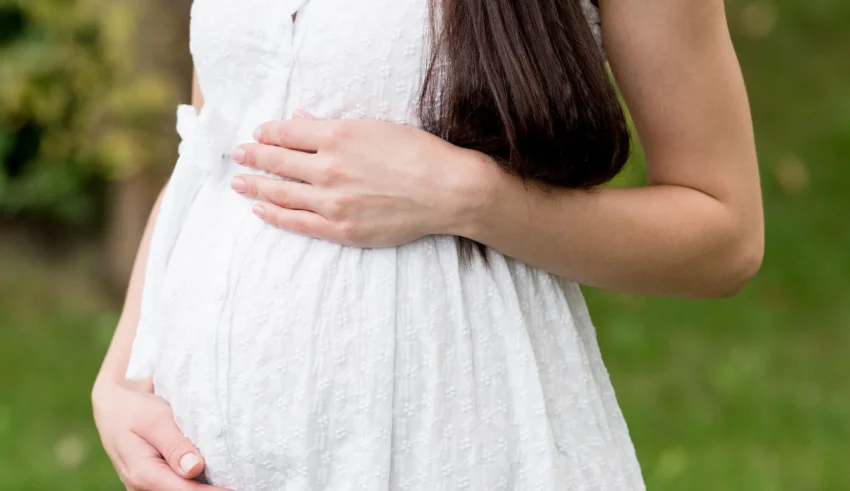
When you find out you’re pregnant, there’s more to look forward to than your child’s birth. Get ready for nine months of beautiful days for your hair, too. To help you cope with the hair changes you can expect during pregnancy and the postnatal period, here’s a rundown of everything you need to know to keep your hair looking its best.
How important is hair care during pregnancy?
Hair care during pregnancy is essential because of the hormonal changes that affect hair and scalp health. These changes can make hair and scalp more susceptible to dryness, excess sebum, breakage, or shedding. It is therefore essential to opt for natural products free from harmful chemicals and to adopt a balanced diet to preserve the health of hair and scalp during this delicate period, and thus minimize problems of hair loss or dryness.
Why does pregnancy hair change?
First of all, what causes all these annoying changes? You probably know the answer. Hormonal surges throughout pregnancy reach a fever pitch, with estrogen being the main culprit. This can lead to everything from rapid strand growth to dry, limp hair – it can be hard to predict what’s going to happen next. Every mum-to-be is as unique as her hair! Now that you know the cause, let’s take a look at the most common hair changes during pregnancy and give you our top pregnancy hair care tips. Just because you’re pregnant doesn’t mean your hair has to suffer!
What are the essential tips for hair care during pregnancy?
1- Massage hair with natural oils
This method nourishes the scalp and strengthens hair roots. Use natural oils such as olive, castor, almond, coconut, or argan. Gently massage the hair with the heated oil for 10 minutes, cover with a towel or cap for half an hour or more, then shampoo. Repeat this process once or twice a week for optimal results.
2- Avoid coloring
It’s advisable to refrain from using chemical dyes during pregnancy, due to the potential risks to hair and health in general. Some dyes can cause allergies, and scalp infections or have a negative impact on fetal growth. Opt for natural henna or ammonia- and peroxide-free dyes. Check the quality of the product and perform a patch test before application.
3- Get regular haircuts
Periodically trimming the ends of your hair eliminates split ends and damaged areas, promoting an elegant, healthy appearance. Adopting a hairstyle that suits the shape of your face will make hair care easier to manage. We recommend cutting your hair every 6 to 8 weeks to preserve its health and growth.
4- Identify your hair type and use the right products
Understanding your hair type – dry, oily, combination, curly, or straight – helps you choose the right products, such as shampoos, conditioners, masks, serums, and oils with natural moisturizing and nourishing properties. Avoid products containing drying agents such as sodium lauryl sulfate, parabens, silicones, alcohol, or synthetic fragrances, as they can damage hair.
5- Maintain a balanced diet
Nutrition has a significant impact on the health of hair and the body in general. Consume foods rich in protein, iron, zinc, vitamins, minerals, and essential fatty acids, which contribute to cell formation, hair loss prevention, and improved hair appearance. Include meat, poultry, eggs, fish, dairy products, nuts, legumes, vegetables, fruit, and whole grains in your diet. Adequate water intake also helps hydrate hair, preventing breakage and dryness.
6- Relax and reduce stress
Hormonal and psychological changes during pregnancy affect mood and health. Stress reduces blood flow to the scalp, leading to hair loss. Practice activities such as yoga, meditation, deep breathing, or listening to soothing music to reduce stress and negativity. Prioritize sufficient sleep to restore energy and health.
7- Avoid styling wet hair
It’s advisable to let hair dry naturally and avoid combing it when wet, to minimize the use of electric hair dryers, which can damage hair, making it drier and breaking it. Opt for wide-tooth combs to reduce hair loss when styling.
8- Use natural blends for hair care
Prepare safe, effective, and economical natural blends at home to care for your hair during pregnancy. For example, a mixture of honey and milk, fenugreek and milk, or avocado with coconut milk, honey, and olive oil.
Is it safe to use chemical hair treatments during pregnancy?
According to the American College of Obstetricians and Gynecologists (ACOG), hair chemicals (e.g. hair dyes, perms, and straightening treatments) are probably safe to use during pregnancy, as only a small amount is absorbed through the skin.
However, most health professionals will probably advise you to avoid contact with hair chemicals until the second trimester. Although absorption of chemicals through the skin is minimal, there is still concern that inhalation of fumes could be harmful to the developing baby.
In conclusion
Taking care of your hair during pregnancy involves some simple but essential practices. The use of natural products, regular maintenance, a balanced diet, and stress management are fundamental. These measures nourish your hair and contribute to your general well-being during this period of transformation. Take care of yourself first; your hair will thank you and radiate health and vitality throughout your pregnancy.








